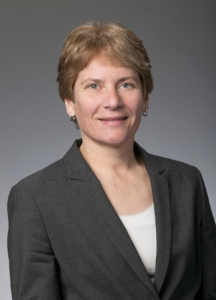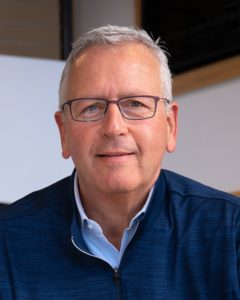
PHIND Seminar Series: Topics Below
Ahmed Metwally, PhD
“Pre-symptomatic detection of COVID-19 via wearables biosensors”
Postdoctoral Scholar – Michael Snyder, PhD Lab
Department of Genetics
Stanford University
Pierre-Alexandre Fournier, MS
“Continuous remote cardiorespiratory and health monitoring using the Hexoskin biometric shirt”
Co-founder and CEO
Hexoskin
Location: Zoom Webinar
Webinar URL: https://stanford.zoom.us/s/98925964231
Dial: +1 650 724 9799 or +1 833 302 1536 (Toll Free)
Webinar ID: 989 2596 4231
Passcode: 298382
11:00am – 12:00pm Seminar & Discussion
RSVP: https://stanford.zoom.us/webinar/register/WN_bruT-pvvQUePuBLqm2SLkQ
Ahmed Metwally Abstract
Wearable devices digitally measuring vital signs have been used for monitoring health and illness onset and have a high potential for real-time monitoring and disease detection. As such, they are potentially useful during public health crises, such as the current COVID-19 global pandemic. In my talk, I’ll discuss how wearables biosensors can be used as a tool to early detect COVID19 onset using physiological and activity data. By using retrospective smartwatch data, we showed that 63% of the COVID-19 cases could be detected before symptom onset in real-time via the occurrence of extreme elevations in resting heart rate relative to the individual baseline. Our findings suggest that consumer wearables may be used for the large-scale real-time detection of respiratory infections, often pre-symptomatically, and provide an approach for managing epidemics using digital tracking and health monitoring.
About Ahmed Metwally
Ahmed Metwally is a postdoctoral scholar in the Snyder lab at Stanford University. Ahmed received his Ph.D. in Bioinformatics/Bioengineering and MS in Computer Science (focused on Deep Learning), both from the University of Illinois at Chicago (UIC) in 2018. He currently works on developing novel machine learning methods for longitudinal multimodal biomedical data fusion (omics and wearable biosensors data) to early detect cardiometabolic diseases and personalize their treatments. Ahmed has received numerous awards, such as NIH Predoctoral Translational Scientist fellowship, ISMB’20 best talk award, Stanford COVID-19 RISE Grant, second-place award at Stanford Health++ Hackathon, and many travel awards NSF, IEEE, ISCB, and UIUC for various educational and scholarly activities.
Pierre-Alexandre Fournier Abstract
The Hexoskin Connected Health platform will be discussed as an example of a biometric shirt validated for use in telehealth and clinical research. Hexoskin has the only clinically validated biometric garment which provides continuous monitoring of numerous and unique physiological parameters. Hexoskin is an enabling technology for telehealth use cases, such as remote patient monitoring, rehab, and detect the onset of illness. Hexoskin offers a unique set of high-resolution biometric data that can continuously monitor activity, sleep, cardiac and respiratory data. Projects in fields such as cardiology, respiratory, behavioral and physiological psychology, biofeedback research, sleep research, and health will be described. The Hexoskin Connected Health Platform provides researchers with accessible solutions such as the Hexoskin Dashboards, Open API, and Apps to manage, visualize, annotate, analyze, and export raw & processed health data. Data extraction tools allow access to the raw data with time series for machine learning and artificial intelligence projects.
About Pierre-Alexandre Fournier
Pierre-Alexandre Fournier is co-founder and CEO of Hexoskin, a Montreal-based company focused on clinical-grade wearable sensors and AI software for health and clinical research. Hexoskin was founded in 2006 and in 2013 released the first iPhone compatible smart clothing for health monitoring, winning several international awards. In 2018 Hexoskin launched a remote health monitoring system for astronauts on the International Space Station. Hexoskin recently reached the milestone of 100 scientific publications. Pierre-Alexandre earned his MASc and his BEng in Electrical Engineering from the Ecole Polytechnique de Montreal and became a lecturer there teaching machine learning. He completed the Harvard Business School HBX Core program with high honors. Pierre-Alexandre is also an advocate for transparency in healthcare, patient empowerment, and healthcare innovation through design.
Hosted by: Angela McIntyre, Executive Director, eWEAR Initiative
Sponsored by: PHIND Center, Department of Radiology, eWEAR Initiative

CEDSS: Systematic identification of fluid-based biomarkers for ovarian and prostate cancer
Thomas Kislinger, Ph.D.
Professor & Chair
Department of Medical Biophysics
University of Toronto
Senior Scientist
Princess Margaret Cancer Centre
Zoom Webinar Details
Meeting URL: https://stanford.zoom.us/s/94878578384
Dial: +1 650 724 9799 or +1 833 302 1536
Webinar ID: 948 7857 8384
Passcode: 692692
Register Here
ABOUT
Thomas Kislinger received his MSc in Analytical Chemistry from the University of Munich, Germany (1998). He completed his PhD in 2001, investigating the role of Advanced Glycation Endproducts in diabetic vascular complications at the University of Erlangen, Germany and Columbia University, New York. Between 2002 and 2006 he completed a post-doctoral fellowship at the University of Toronto. In 2006 he joined the Princess Margaret Cancer Centre as an independent investigator. Dr. Kislinger holds positions as Senior Scientist at the Princess Margaret Cancer Centre and as Professor and Chair at the University of Toronto in the Department of Medical Biophysics. The Kislinger lab applies proteomics technologies to translational and basic cancer biology. This includes the development of novel proteomics methodologies, identification of liquid biopsy signatures and the molecular identification of novel cell surface markers.
Hosted by: Utkan Demirci, Ph.D.
Sponsored by: The Canary Center & the Department of Radiology
Stanford University – School of Medicine

Intersection of Imaging and Therapeutics – MIPS Mini-Retreat
Hosted by: Dr. Heike Daldrup-Link, MD & Dr. Katherine Ferrara, PhD
Sponsored by: Department of Radiology, Molecular Imaging Program at Stanford
The MIPS Mini-retreat series brings together members of the MIPS and greater School of Medicine community to discuss current opportunities for research and collaborations. Each month we will discuss a different topic and we invite all those interested to attend. The mini-retreats will be roughly 1.5-2 hours in length with ample time for discussion throughout. We hope you can join us and spark new collaborations!
Zoom Webinar Information
Webinar URL: https://stanford.zoom.us/j/96227145646
Dial: US: +1 650 724 9799 or +1 833 302 1536 (Toll Free)
Webinar ID: 962 2714 5646
Passcode: 3039816
Agenda (all times are in PST)
8:00-8:05 AM – Opening Remarks – Katherine Ferrara, PhD
8:05-8:20 AM – Image-guided Therapy – Heike Daldrup-Link, MD
8:20-8:35 AM – Imaging Antibody Distribution – Eben Rosenthal, MD
8:35-8:50 AM – MRgFUS and Pancreatic Cancer – Pejman Ghanouni, MD, PhD
8:50-9:05 AM – RefleXion – Lucas Kas Vitzhum, MD
9:05-10:00 AM – Discussion – Moderated by: Katherine Ferrara, PhD

MIPS Seminar Series: Translational Opportunities in Glycoscience
Carolyn Bertozzi, PhD
Director, ChEM-H
Anne T. and Robert M. Bass Professor in the School of Humanities and Sciences
Professor, by courtesy, of Chemical and Systems Biology
Stanford University
Location: Zoom
Webinar URL: . https://stanford.zoom.us/j/94010708043
Dial: US: +1 650 724 9799 or +1 833 302 1536 (Toll Free)
Webinar ID: 940 1070 8043
Passcode: 659236
12:00pm – 12:45pm Seminar & Discussion
RSVP Here
ABSTRACT
Cell surface glycans constitute a rich biomolecular dataset that drives both normal and pathological processes. Their “readers” are glycan-binding receptors that can engage in cell-cell interactions and cell signaling. Our research focuses on mechanistic studies of glycan/receptor biology and applications of this knowledge to new therapeutic strategies. Our recent efforts center on pathogenic glycans in the tumor microenvironment and new therapeutic modalities based on the concept of targeted degradation.
ABOUT
Carolyn Bertozzi is the Baker Family Director of Stanford ChEM-H and the Anne T. and Robert M. Bass Professor of Humanities and Sciences in the Department of Chemistry at Stanford University. She is also an Investigator of the Howard Hughes Medical Institute. Her research focuses on profiling changes in cell surface glycosylation associated with cancer, inflammation and infection, and exploiting this information for development of diagnostic and therapeutic approaches, most recently in the area of immuno-oncology. She is an elected member of the National Academy of Medicine, the National Academy of Sciences, and the American Academy of Arts and Sciences. She also has been awarded the Lemelson-MIT Prize, a MacArthur Foundation Fellowship, the Chemistry for the Future Solvay Prize, among many others.
Hosted by: Katherine Ferrara, PhD
Sponsored by: Molecular Imaging Program at Stanford & the Department of Radiology

PHIND Seminar Series: Maternal Trauma History, Attachment Style, and Depression Are Associated with Broad DNA Methylation Signatures in Infants
Thalia Robakis, M.D., Ph.D.
Associate Professor
Department of Psychiatry
Mount Sinai School of Medicine
Location: Zoom
Webinar URL: https://stanford.zoom.us/s/95483174518
Dial: US: +1 650 724 9799 or +1 833 302 1536 (Toll Free)
Webinar ID: 954 8317 4518
Passcode: 179384
11:00am – 12:00pm Seminar & Discussion
RSVP Here
ABSTRACT
Background: The early environment provides many cues to young organisms that guide their development as they mature. Maternal personality and behavior are an important aspect of the environment of the developing human infant. The molecular mechanisms by which these influences are exerted are not well understood. We attempted to identify whether maternal traits could be associated with alterations in DNA methylation patterns in infants.
Methods: 32 women oversampled for history of depression were recruited in pregnancy and provided information on depressive symptoms, attachment style, and history of early life adversity. Buccal cell DNA was obtained from their infants at six months of age for a large-scale analysis of methylation patterns across 5×106 individual CpG dinucleotides, using clustering-based criteria for significance to control for multiple comparisons. Separately, associations between maternal depression, attachment style, and history of adversity and psychobehavioral outcomes in preschool-age children were examined.
Results: Tens of thousands of individual infant CpGs were alternatively methylated in association with each of the three studied maternal traits. Genes implicated in cell-cell communication, developmental patterning, growth, immune function/inflammatory response, and neurotransmission were identified. The result sets were highly coextensive among the three maternal traits, but areas of divergence exhibited intriguing parallels with behavioral outcomes.
Conclusions: Maternal personality traits are an important aspect of the infant environment that shapes offspring development in many ways. Infant genes that are epigenetically modified in reponse to maternal traits are potential candidate mediators for these effects. We have identified a large number of such genes and demonstrated parallels to clinically measurable outcomes in children.
ABOUT
Dr. Robakis is a psychiatrist with clinical and research interests in perinatal mood disorders and in the contribution of early life experiences to adult mental health and illness. She completed her M.D. as well as a Ph.D. in developmental neurobiology at Columbia University’s Medical Scientist Training Program, residency training in psychiatry at Stanford University School of Medicine, and a research fellowship in perinatal mood disorders also at Stanford. She remained on the clinical faculty at Stanford until 2019, when she accepted a position at the Icahn School of Medicine at Mount Sinai, where she is currently Associate Clinical Professor of Psychiatry and Assistant Director of the Women’s Mental Health Program.
Dr. Robakis’ research interests include the effects of early life stress and disordered attachment on risk for psychiatric illness in the perinatal period, on alterations in metabolism and cognition, and on psychobehavioral development in offspring. She is particularly interested in using epigenetic marks to help identify the biological pathways through which early life experiences exert their effects on outcomes in adulthood and intergenerationally.
Hosted by: Garry Gold, M.D.
Sponsored by the PHIND Center and the Department of Radiology

Imaging Immune Cell Modulation – MIPS Mini-Retreat
Hosted by: Dr. Katherine Ferrara, PhD
Sponsored by: Department of Radiology, Molecular Imaging Program at Stanford
The MIPS Mini-retreat series brings together members of the MIPS and greater School of Medicine community to discuss current opportunities for research and collaborations. Each month we will discuss a different topic and we invite all those interested to attend. The mini-retreats will be roughly 1.5-2 hours in length with ample time for discussion throughout. We hope you can join us and spark new collaborations!
Zoom Webinar Information
Webinar URL: https://stanford.zoom.us/j/94969801773
Dial: US: +1 650 724 9799 or +1 833 302 1536 (Toll Free)
Webinar ID: 949 6980 1773
Passcode: 292995
Agenda (all times are in PST)
8:00-8:05 AM – Opening Remarks – Katherine Ferrara, PhD
8:05-8:25 AM – Imaging CAR-T cells – Clinical Need – Crystal Mackall, MD
8:25-8:45 AM – Imaging Immune Cells in Cancer – Clinical Need – Ronald Levy, MD
8:45-9:05 AM – Imaging Approaches – Anna Wu, PhD
9:05-10:00 AM – Discussion – Moderated by: Katherine Ferrara, PhD

MIPS Seminar Series: “Convergent, translational research to improve human health”
Joseph M. DeSimone, PhD
Sanjiv Sam Gambhir Professor of Translational Medicine and Chemical Engineering
Departments of Radiology and Chemical Engineering
Graduate School of Business (by Courtesy)
Stanford University
Location: Zoom
Webinar URL: https://stanford.zoom.us/s/98460805010
Dial: +1 650 724 9799 or +1 833 302 1536
Webinar ID: 984 6080 5010
Passcode: 809226
12:00pm – 12:45pm Seminar & Discussion
RSVP Here
ABSTRACT
In many ways, manufacturing processes define what’s possible in society. Central to our interests in the DeSimone laboratory are opportunities to make things using cutting-edge fabrication technologies that can improve human health. This lecture will describe advances in nano- / micro-fabrication and 3D printing technologies that we have made and employed toward this end. Using novel perfluoropolyether materials synthesized in our lab in 2004, we invented the Particle Replication in Non-wetting Templates (PRINT) technology, a high-resolution imprint lithography-based process to fabricate nano- and micro-particles with precise and independent control over particle parameters (e.g. size, shape, modulus, composition, charge, surface chemistry). PRINT brought the precision and uniformity associated with computer industry manufacturing technologies to medicine, resulting in the launch of Liquidia Technologies (NASDAQ: LQDA) and opening new research paths, including to elucidate the influence of specific particle parameters in biological systems (Proc. Natl. Acad. Sci. USA 2008), and to reveal insights to inform the design of vaccines (J. Control. Release 2018), targeted therapeutics (Nano Letters 2015), and even synthetic blood (PNAS 2011). In 2015, we reported the invention of the Continuous Liquid Interface Production (CLIP) 3D printing technology (Science 2015), which overcame major fundamental limitations in polymer 3D printing—slowness, a very limited range of materials, and an inability to create parts with the mechanical and thermal properties needed for widespread, durable utility. By rethinking the physics and chemistry of 3D printing, we created CLIP to eliminate layer-by-layer fabrication altogether. A rapid, continuous process, CLIP generates production-grade parts and is now transforming how products are manufactured in industries including automotive, footwear, and medicine. For example, to help address shortages, CLIP recently enabled a new nasopharyngeal swab for COVID-19 diagnostic testing to go from concept to market in just 20 days, followed by a 400-patient clinical trial at Stanford. Academic laboratories are also using CLIP to pursue new medical device possibilities, including geometrically complex IVRs to optimize drug delivery and implantable chemotherapy absorbers to limit toxic side effects. Vast opportunities exist to use CLIP to pursue next-generation medical devices and prostheses. Moreover, CLIP can improve current approaches; for example, the fabrication of an iontophoretic device we invented several years ago (Sci. Transl. Med. 2015) to drive chemotherapeutics directly into hard-to-reach solid tumors is now being optimized for clinical trials with CLIP. New design opportunities also exist in early detection, for example to improve specimen collection, device performance (e.g. microfluidics, cell sorting, supporting growth and studies with human organoids), and imaging (e.g. PET detectors, ultrasound transducers). Here at Stanford, we are pursuing new 3D printing advances, including software treatment planning for digital therapeutic devices in pediatric medicine, as well as the design of a high-resolution printer capable of single-digit micron resolution to advance microneedle designs as a potent delivery platform for vaccines. The impact of our work on human health ultimately relies on our ability to enable a convergent research program to take shape that allows for new connections to be made among traditionally disparate disciplines and concepts, and to ensure that we maintain a consistent focus on the translational potential of our discoveries and advances.
ABOUT
Joseph M. DeSimone is the Sanjiv Sam Gambhir Professor of Translational Medicine and Chemical Engineering at Stanford University. He holds appointments in the Departments of Radiology and Chemical Engineering with a courtesy appointment in Stanford’s Graduate School of Business. Previously, DeSimone was a professor of chemistry at the University of North Carolina at Chapel Hill and of chemical engineering at North Carolina State University. He is also Co-founder, Board Chair, and former CEO (2014 – 2019) of the additive manufacturing company, Carbon.
DeSimone is responsible for numerous breakthroughs in his career in areas including green chemistry, medical devices, nanomedicine, and 3D printing, also co-founding several companies based on his research. He has published over 350 scientific articles and is a named inventor on over 200 issued patents. Additionally, he has mentored 80 students through Ph.D. completion in his career, half of whom are women and members of underrepresented groups in STEM. In 2016 DeSimone was recognized by President Barack Obama with the National Medal of Technology and Innovation, the highest U.S. honor for achievement and leadership in advancing technological progress. He is also one of only 25 individuals elected to all three branches of the U.S. National Academies (Sciences, Medicine, Engineering). DeSimone received his B.S. in Chemistry in 1986 from Ursinus College and his Ph.D. in Chemistry in 1990 from Virginia Tech.
Hosted by: Katherine Ferrara, PhD
Sponsored by: Molecular Imaging Program at Stanford & the Department of Radiology

CEDSS: Disseminated cell hybrids as biomarkers for cancer detection, prognosis and treatment response
Melissa Wong, Ph.D.
Associate Professor and Vice Chair
Department of Cell, Development and Cancer Biology
Program Co-Lead, Knight Cancer Institute
Oregon Health & Science University
Zoom Details
Meeting URL: https://stanford.zoom.us/s/98184098662
Dial: US: +1 650 724 9799 or +1 833 302 1536 (Toll Free)
Meeting ID: 981 8409 8662
Passcode: 084321
ABSTRACT
Metastatic progression defines the final stages of tumor evolution and underlies the majority of cancer-related deaths. The heterogeneity in disseminated tumor cell populations capable of seeding and growing in distant organ sites contributes to the development of treatment resistant disease. We recently reported the identification of a novel tumor-derived cell population, circulating hybrid cells (CHCs), harboring attributes from both macrophages and neoplastic cells, including functional characteristics important to metastatic spread. These disseminated hybrids outnumber conventionally defined circulating tumor cells (CTCs) in cancer patients. It is unknown if CHCs represent a generalized cancer mechanism for cell dissemination, or if this population is relevant to the metastatic cascade. We detect CHCs in the peripheral blood of patients with cancer in myriad disease sites encompassing epithelial and non-epithelial malignancies. Further, we demonstrate that in vivo-derived hybrid cells harbor tumor-initiating capacity in murine cancer models and that CHCs from human breast cancer patients express stem cell antigens, features consistent with the ability to seed and grow at metastatic sites. We reveal heterogeneity of CHC phenotypes reflect key tumor features, including oncogenic mutations and functional protein expression. Importantly, this novel population of disseminated neoplastic cells opens a new area in cancer biology and renewed opportunity for battling metastatic disease.
ABOUT
The research focus of the Wong laboratory revolves around understanding the regulatory mechanisms that control epithelial stem cell homeostasis and their expansion in developmental, homeostasis and disease contexts, including cancer. I have substantial training and experience in intestinal stem cell investigation leveraging in vivo and ex vivo modeling, as well as in myriad cutting edge technologies (i.e. cyCIF, scRNA-seq). My publication record spans my post-doctoral fellowship in Dr. Jeffrey Gordon’s laboratory at Washington University School of Medicine, to studies in my own laboratory at Oregon Health & Science University. Our research impacts the understanding of regulatory mechanisms that govern cell state in the context of the evolving tissue microenvironment and changing cell signaling landscape, in development and disease.
Our studies in stem cell regulation led to the intriguing finding that stem cells can fuse with tissue macrophages in the context of injury repair and may impact tissue regeneration. We have extended these findings to the cancer setting, where cancer-macrophage fusions are detectible in primary and metastatic tumors, and my group recently identified and characterized these cells as a novel circulating tumor cell population. Importantly, our studies in cell culture, in mice and humans provide an indepth evaluation of hybrid cells to set the foundation for continued investigations into their biology, impact on disease progression or tissue regeneration, and use as a biomarker for disease burden. Importantly, we coined the term, circulating hybrid cell (CHC) for this novel population and reported they exist at higher levels than conventionally defined circulating tumor cells in the peripheral blood of cancer patients. This work was published in 2018 and highlighted by Science Magazine as one of the top ten publications in the cancer field in the science family journals. The science proposed in this U01 application leverage hybrid cell biology to assess treatment response and resistance in breast cancer patients undergoing targeted therapy. Our proposal leverages active collaborations with Dr. Young Hwan Young’s group to synergize biology with computation, as well as a number of other valuable collaborators to ensure success of the proposed, cutting-edge science.
Hosted by: Utkan Demirci, Ph.D.
Sponsored by: The Canary Center & the Department of Radiology
Stanford University – School of Medicine

Join us for the annual Precision Health & Integrated Diagnostics Symposium. This all-day virtual event will showcase the exciting PHIND work that is going on campus wide. The featured presentations will be from current PHIND investigators and Precision Health experts. We hope you can join us and look forward to building the PHIND community together.
The agenda and speaker information are available on the PHIND website. The event is fully virtual and the livestream link will be posted on the PHIND website closer to the event.

MIPS Seminar Series: “Circulating Tumor DNA Biomarkers for Therapy Monitoring and Early Detection”
Shan X. Wang, PhD
Leland T. Edwards Professor in the School of Engineering
Professor of Materials Science & Engineering, jointly of Electrical Engineering, and by courtesy of Radiology (Stanford School of Medicine)
Director, Stanford Center for Magnetic Nanotechnology
Stanford University
Location: Zoom
Webinar URL: https://stanford.zoom.us/s/93202777468
Dial: +1 650 724 9799 or +1 833 302 1536
Webinar ID: 932 0277 7468
Passcode: 851144
12:00pm – 12:45pm Seminar & Discussion
RSVP Here
ABSTRACT
Inspired by Dr Sam Gambhir, MIPS, Canary Center, and Stanford CCNE have pursued in vivo imaging and in vitro diagnostic tests for cancer therapeutic response or early detection, respectively, over the last 15+ years. Here I present two successful examples based on circulating tumor DNA (ctDNA) targets in plasma, complementary to imaging modalities such as CT and Ultrasound.
We have developed a simple yet highly sensitive assay for the detection of actionable mutational targets such as Epidermal Growth Factor Receptor (EGFR) and Kirsten rat sarcoma oncogene (KRAS) mutations in the plasma ctDNA from non-small cell lung cancer (NSCLC) patients using giant magnetoresistive (GMR) nanosensors. Our assay achieves lower limits of detection compared to standard fluorescent PCR based assays, and comparable performance to digital PCR methods. In 30 patients with metastatic disease and known EGFR mutation status at diagnosis, our assay achieved 87.5% sensitivity for Exon19 deletion and 90% sensitivity for L858R mutation while retaining 100% specificity; additionally, our assay detected secondary T790M mutation resistance with 96.3% specificity while retaining 100% sensitivity. We re-sampled 13 patients undergoing tyrosine kinase inhibitor (TKI) therapy 2 weeks after initiation to assess response, our GMR assay was 100% accurate in correlation with longitudinal clinical outcome, and the responders identified by the GMR assay had significantly improved progression free survival (PFS) compared to the non-responders. The GMR assay is low cost, rapid, and portable, making it ideal for detecting actionable mutations at diagnosis and non-invasively monitoring treatment response in the clinic.
On another front, we have also developed a highly sensitive and multiplexed assay for the detection of methylated ctDNA targets in plasma samples. Current diagnostic tests for liver cancer in at-risk patients are cumbersome, costly and inaccurate, resulting in a need for accurate blood-based tests. By devising a Layered Analysis of Methylated Biomarkers (LAMB) from the relevant big data, we have discovered a set of DNA targets in the blood that accurately detects liver cancer in these at-risk patients. This set of methylated targets was found by analyzing the genetic information of 3411 liver cancer patients and 1722 healthy people. Our results could lead to clinical adoption of liquid biopsy tests for liver cancer surveillance in high-risk populations and the development of blood tests for other cancers.
ABOUT
Prof. Wang directs the Center for Magnetic Nanotechnology and is a leading expert in biosensors, information storage and spintronics. His research and inventions span across a variety of areas including magnetic biochips, in vitro diagnostics, cancer biomarkers, magnetic nanoparticles, magnetic sensors, magnetoresistive random access memory, and magnetic integrated inductors. He has over 300 publications, and holds 65 issued or pending patents in these and interdisciplinary areas. He was named an inaugural Fred Terman Fellow, and was elected a Fellow of the Institute of Electrical and Electronics Engineers (IEEE) and a Fellow of American Physical Society (APS) for his seminal contributions to magnetic materials and nanosensors. His team won the Grand Challenge Exploration Award from Gates Foundation (2010), the XCHALLENGE Distinguished Award (2014), and the Bold Epic Innovator Award from the XPRIZE Foundation (2017).
Dr. Wang cofounded three high-tech startups in Silicon Valley, including MagArray, Inc. and Flux Biosciences, Inc. In 2018 MagArray launched a first of its kind lung cancer early diagnostic assay based on protein cancer biomarkers and support vector machine (SVM). In 2019, Flux Biosciences launched a human trial to offer at-home testing of fertility based on hormones and magneto-nanosensors. Through his participation in the Center for Cancer Nanotechnology Excellence (as co-PI of the CCNE) and the Joint University Microelectronics Program (JUMP), he is actively engaged in the transformative research of healthcare and is developing emerging memories for energy efficient computing.
Hosted by: Katherine Ferrara, PhD
Sponsored by: Molecular Imaging Program at Stanford & the Department of Radiology